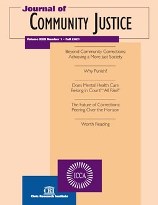An Untenable Standard: “No” vs. “Low” Risk in the Adam Walsh Act
Author: Robin J. Wilson.; David S. Prescott.
Source: Volume 27, Number 04, Summer 2018 , pp.9-13(5)

< previous article |next article > |return to table of contents
Abstract:
People convicted of sexual offenses in the United States face a variety of statutorily imposed sanctions. Most of these are related to incarceration and community supervision, including residency restrictions, registration, and other risk-management measures. However, the negative effects of being a known sexual offender do not cease at the end of an offender’s period of criminal sanction. For instance, the Adam Walsh Child Protection and Safety Act of 2006 (AWA) contains language regarding the rights of registered sexual offenders to engage in certain behaviors commonly enjoyed nonsexual offenders. One of these is the right to sponsor a spouse for permanent resident status (i.e., Green Card). According to AWA rules (Section 402(a)(2)), a registered sexual offender with a history of engaging in child sexual abuse is required to submit a petition, often including psychological assessment data, indicating that he/she poses no risk to the person he/she is supporting for permanent resident status. The authors submit that this is an untenable and unreasonable standard.Keywords: Child Sexual Offending, Sexual Offending Risk, Sexual Offenders’ Rights, Adam Walsh Act, Immigration
Affiliations:
1: Wilson Psychology Services LLC; 2: Becket Family of Services.